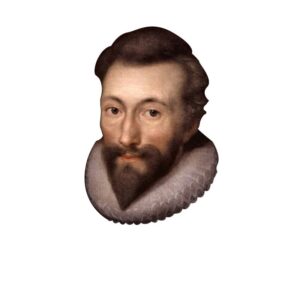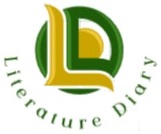John Donne: A love poet
John Donne was the first English poet to challenge and break the supremacy of Petrarchan tradition. Though at times he adopts the Petrarchan devices, yet his imagery and rhythm, texture and colour of his love poetry is different. There are three distinct strains of his love poetry – Cynical, Platonic and Conjugal love.
was the first English poet to challenge and break the supremacy of Petrarchan tradition. Though at times he adopts the Petrarchan devices, yet his imagery and rhythm, texture and colour of his love poetry is different. There are three distinct strains of his love poetry – Cynical, Platonic and Conjugal love.
Giving an allusion to Donne’s originality as the poet of love, Grierson makes the following observation:
His genius temperament and learning gave a certain qualities to his love poems … which arrest our attention immediately. His love poems, for instance, do have a power which is at once realistic and distracting.
Donne’s greatness as a love poet arises from the fact that this poetry covers a wider range of emotions than that of any previous poet. His poetry is not bookish but is rooted in his personal experiences. Is love experience were wide and varied and so is the emotional range of his love-poetry. He had love affairs with a number of women. Some of them were lasting and permanent, other were only of a short duration.
Donne is quite original in presenting the love situations and moods.
The “experience of love” must produce a “sense of connection” in both the lovers. This “sense of connection” must be based on equal urge and longing on both the sides.
The room of love” must be shared equally by the two partners.
Donne magnifies the ideal of “Sense of connection” into the physical fulfillment of love.
My face in thine eyes thine in mime appears
This aspect of love helps him in the virtual analysis of the experience of love. Donne was a shrewd observer who had first hand knowledge of 3love and related affairs. That is why in almost all his poems, he has a deep insight.
His love as expressed in his poetry was based not on conventions but on his own experiences. He experienced all phase of love – platonic, sensuous, serene, cynical, conjugal, illicit, lusty, picturesque and sensual. He could also be grotesque blending thought with passion.
Another peculiar quality of Donne’s love lyrics is its “metaphysical strain”. His poems are sensuous and fantastic. Donne’s metaphysical strain made his reader confused his sincerity.
Donne’s genius temperament and learning gave to his love poems power and fascination. There is a depth and rang of feeling unknown to the majority of Elizabethan poets. Donne’s poetry is startlingly unconventional even when he dallies, half ironically, with the hyperboles of petrarch.
John Donne is realistic not an idealistic. He knows the weakness of Flesh, the pleasure of sex, the joy of secret meeting. However he tries to establish a relationship between the body and the soul. Donne is very realistic poet.
Grierson distinguished three distinct strains in it. First there is the cynical strain. Secondly, there is the strain of conjugal love to be noticed in poems like “valediction: forbidding mourning”. Thirdly, there is platonic strain. The platonic strain is to be found in poems like “Twicknam Garden”, “The Funeral”, “The Blossoms”, and “The Primroses”. These poems were probably addressed to the high-born lady friends. Towards them he adopts the helpless pose of flirtations and in high platonic vein boasts that:
Different of sex no more we know
Than our Guardian Angles doe
In between the cynical realistic strain and the highest spiritual strain, there are a number of poems which show an endless variety of mood and tone. Thus thee are poems in which the tone is harsh, others which are coarse and brutal, still other in which he holds out a making threat to his faithless mistress and still others in which he is in a reflective mood. More often that not, a number of strains and moods are mixed up in the same poem. This makes Donne as a love poet singularly, original, unconventional and realistic.
Whatever may be the tone or mood of a particular poem, it is always an expression of some personal experience and is, therefore, presented with remarkable force, sincerity and seriousness. Each poem deals with a love situation which is intellectually analyzed with the skill of an experienced lawyer.
Hence the difficult nature of his poetry and the charge of obscurity have been brought against him. The difficulty of the readers is further increased by the extreme condensation and destiny of Donne’s poetry.
The fantastic nature of the metaphysical conceits and poetry would become clear even w0e examine a few examples. In “Valediction: Forbidden Mourning” true lovers now parted are likened to the legs of a compass. The image is elaborated at length. The lovers are spiritually one, just as the head of the compass is one even when the legs are apart. One leg remains fixed and the other moves round it. The lover cannot forget the beloved even when separated from her. The two loves meet together in the end just as the two legs of the compass are together again, as soon as circle has been drawn.
At other times, he uses equally extravagated hyperboles. For example, he mistakes his beloved to an angel, for to imagine her less than an angle would be profanity.
In Donne’s poetry, there is always an “intellectual analysis” of emotion. Like a clever lawyer, Donne gives arguments after arguments in support of his points of view. Thus in “Valediction: Forbidden Mourning” he proves that true lovers need not mourn at the time of parting. In “Canonization” he establishes that lovers are saints of love and in “The Blossome” he argues against the petrarchan love tradition. In all this Donne is a realistic love poet.

Productive, terse and extracting effort. Thumbs up
This is really good
Good help with the random quotes ��
John Donne was way ahead of his time. Although it is true that he was known to be a libertine, and courted many ladies, he truly loved only one, Ann More. He committed himself to her by marriage after great troubles as she belonged to a higher class, but as destiny would have it, she died at a young age of 33, after which he never remarried, unlike the conventions of those times. A good number of his poems were dedicated to her, where he spoke of true love,e.g. The Good Morrow…
this article is really conducive..thnx..:)
jazakALLAH
its too hlpfl .. thnx
Thanx a lot.. 🙂
its really very helpful…thank you.
its really very good……. thanks a lot
its really helpful….thnx ….